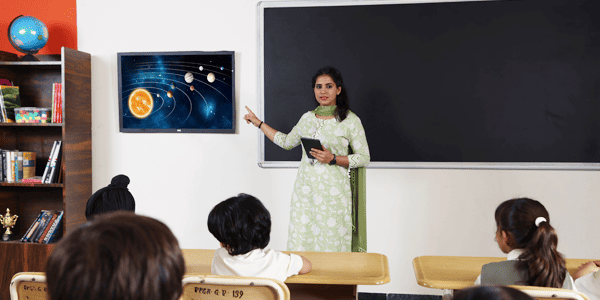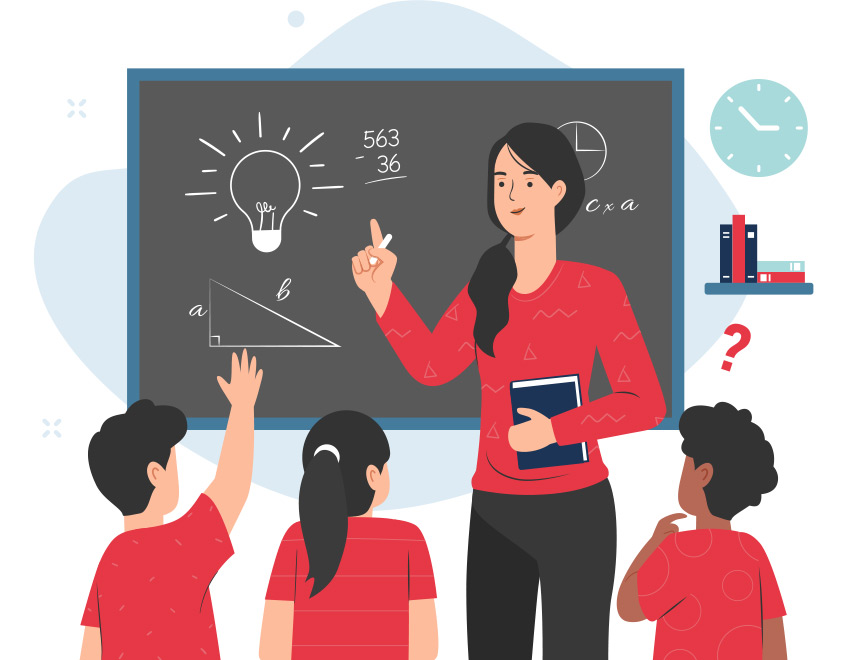Personalized Primary Science Tuition Singapore to Cater to Your Child’s Needs
Personalized Primary Science Tuition Singapore to Cater to Your Child’s Needs
Blog Article
A Comprehensive Guide to the Numerous Learning Techniques in Primary Science Instruction
The expedition of diverse discovering approaches in primary scientific research guideline provides an opportunity for educators to boost trainee interaction and understanding considerably. By taking a look at hands-on understanding methods, inquiry-based methods, and collective methods, we can recognize reliable methods that provide to numerous learning styles.

Hands-On Understanding Techniques
Hands-on learning methods play a pivotal function in primary scientific research guideline, involving students in active expedition and testing. These methods enable learners to engage directly with materials and phenomena, promoting a much deeper understanding of clinical principles. By utilizing manipulatives, models, and real-life experiments, educators produce an environment where students can observe, hypothesize, and check their ideas.
Such methods not only improve comprehension however likewise grow important reasoning and problem-solving skills. When pupils take part in activities like developing easy devices, planting seeds, or carrying out chain reactions, they are motivated to ask concerns and look for responses via their very own monitorings. This experiential approach assists to debunk intricate clinical principles, making them much more relatable and easily accessible.
Moreover, hands-on understanding advertises partnership among peers, as students commonly work in groups to conduct experiments or share searchings for. This teamwork not only improves their knowing experience yet also develops important social skills. Eventually, integrating hands-on strategies in primary scientific research guideline fosters a long-lasting love of knowing and curiosity concerning the natural world, laying a solid foundation for future academic quests in scientific research and past.
Inquiry-Based Learning
Inquiry-based learning is a training technique that motivates pupils to ask inquiries, investigate phenomena, and construct their very own understanding of clinical ideas. This method shifts the emphasis from typical teacher-led guideline to a much more student-centered experience, where students take the initiative in their academic trip. By promoting curiosity, inquiry-based learning advertises deeper interaction with the material, permitting trainees to discover subjects in a significant context.
In practice, this method usually entails hands-on experiments, monitorings, and essential reasoning tasks that straighten closely with the clinical technique. Trainees are encouraged to develop theories, style examinations, and analyze data, which grows important skills such as problem-solving and analytical thinking. The function of the teacher in this structure is to promote exploration, assisting pupils with the inquiry procedure while motivating independent thought and partnership.
Moreover, inquiry-based learning supports a sense of possession over the learning process, motivating students to seek knowledge actively. This method not just improves understanding of clinical principles but likewise promotes a lifelong love for knowing, equipping students with the abilities required to navigate an increasingly complex world.
Collaborative Discovering Approaches
Collaborative learning techniques empower students to participate in meaningful interactions with peers, fostering a common responsibility for their educational results. In primary science instruction, these methods urge learners to collaborate to check out scientific concepts, address troubles, and carry out experiments (primary science tuition Singapore). By taking part in team activities, pupils can utilize diverse point of views, allowing for richer understanding and retention of clinical knowledge
One key facet of collaborative discovering is the emphasis on communication abilities. Students must articulate their ideas, pay attention actively to others, and negotiate concepts, every one of which are important competencies in both academic and real-world contexts. This social interaction not just boosts their understanding of scientific concepts however likewise advertises synergy and conflict resolution abilities.
When students see the value of their contributions within a group, they are extra likely to take possession of their knowing trip. Overall, including collaborative discovering approaches in key scientific research instruction cultivates a dynamic understanding environment that prepares students for future scholastic and social obstacles.
Innovation Assimilation in Science
The combination of innovation in main science guideline enhances finding out experiences by supplying cutting-edge devices and resources that support various training techniques, including collective knowing - primary science tuition Singapore. The usage of digital systems, simulations, and interactive applications enables trainees to involve deeply with clinical principles, assisting in an extra hands-on technique to learning
Online labs, as an example, make it possible for students to conduct experiments securely and effectively, promoting inquiry-based understanding. These tools can replicate real-world clinical circumstances, permitting trainees to visualize intricate processes that would be challenging to reproduce in a typical class setting. In addition, innovation promotes communication and partnership amongst trainees, as they can share searchings for and function together on tasks with on-line platforms.
Furthermore, multimedia discussions and instructional video clips can enhance lessons by accommodating diverse discovering styles, making abstract ideas much more accessible. Data analysis devices additionally empower trainees to accumulate and analyze scientific data, strengthening critical assuming abilities. Overall, the tactical incorporation of innovation in key science direction not only improves involvement yet likewise prepares trainees for a highly innovative society, outfitting them with necessary abilities for future clinical ventures.
Distinguished Instruction Approaches
Set apart guideline approaches are vital for resolving the diverse demands of learners in key scientific research education. These strategies make it possible for educators to customize their training approaches to accommodate varying capabilities, interests, and learning styles within Home Page the class. By using separated guideline, instructors can create an inclusive setting that fosters interaction and boosts understanding of scientific ideas.
One reliable method is to utilize flexible organizing, which permits students to work together with peers at comparable skill levels or with varying viewpoints. This strategy urges peer understanding and advertises important thinking. Additionally, offering options in tasks can empower pupils, allowing them to select tasks that reverberate with their interests while still satisfying curricular purposes.
Furthermore, integrating tiered projects is another valuable technique. Deliberately jobs with varying levels of complexity, instructors can ensure that all trainees are suitably challenged, despite their proficiency. Making use of developmental evaluations to gauge comprehending further allows educators to adjust their instructional approaches dynamically, making sure that each learner gets the assistance they need.
Inevitably, implementing separated instruction methods in main scientific research education not only improves student understanding results yet likewise grows a passion for scientific research, preparing pupils for future scholastic searches.

Verdict
In summary, reliable main scientific research direction requires a multifaceted technique that includes hands-on knowing, inquiry-based methods, and collective strategies. The assimilation of innovation and separated guideline additionally caters to varied discovering styles, cultivating an atmosphere for exploration and crucial thinking. explanation By implementing these techniques, educators can boost student engagement and understanding, ultimately nurturing a lifelong passion for scientific research and query. Such comprehensive techniques are vital for establishing notified and interested future researchers.
The expedition of diverse discovering methods in main scientific research direction presents a possibility for educators to improve trainee involvement and understanding dramatically.Hands-on understanding techniques play an essential function in main scientific research instruction, involving pupils in active expedition and testing.Inquiry-based learning is an instructional approach that motivates pupils to ask questions, examine sensations, and construct their own understanding of clinical principles.Collective learning strategies empower trainees to engage in meaningful interactions with peers, promoting a shared duty for their educational results. On the whole, including collaborative knowing approaches in key science instruction cultivates Learn More Here a dynamic knowing environment that prepares trainees for future scholastic and social difficulties.
Report this page